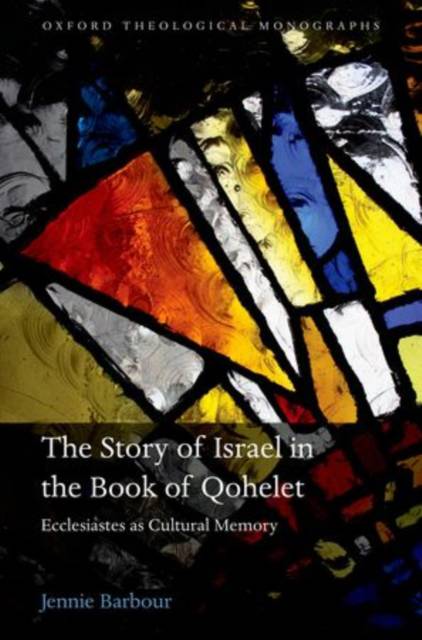
- Retrait gratuit dans votre magasin Club
- 7.000.000 titres dans notre catalogue
- Payer en toute sécurité
- Toujours un magasin près de chez vous
- Retrait gratuit dans votre magasin Club
- 7.000.0000 titres dans notre catalogue
- Payer en toute sécurité
- Toujours un magasin près de chez vous
217,95 €
+ 435 points
Description
This book is a study of the making of collective memory within early Judaism in a seminal text of the Western canon. The book of Ecclesiastes and its speaker Qohelet are famous for saying that there is 'nothing new under the sun'. In the literary tradition of the modern West this has been taken as the motto of a book that is universal in scope, Greek in its patterns of thought, and floating free from the particularism and historical concerns of the rest of the Bible. Jennie Barbour argues that reading the book as a general compendium in this way causes the reader to miss a strong undercurrent in the text.
'Nothing new under the sun' is, in fact, a historical deduction made by Qohelet on the basis of long-range observation, conducted through his study of his nation's traditions: the first sage to turn from the window to the Book is not Ben Sira, but Qohelet himself. While Ecclesiastes says nothing about the great founding events of Israel's story, it is haunted by the decline and fall of the nation and the Babylonian exile, as the trauma of the loss of the kingdom of Solomon persists through a spectrum of intertextual relationships. The view of Qohelet from the throne in Jerusalem takes in the whole sweep of Israel's remembered historical experiences; Ecclesiastes is revealed as not simply as a piece of marketplace philosophy, but as a learned essay in processing a community's memory, with strong ties to the rest of Jewish and Christian scripture.
'Nothing new under the sun' is, in fact, a historical deduction made by Qohelet on the basis of long-range observation, conducted through his study of his nation's traditions: the first sage to turn from the window to the Book is not Ben Sira, but Qohelet himself. While Ecclesiastes says nothing about the great founding events of Israel's story, it is haunted by the decline and fall of the nation and the Babylonian exile, as the trauma of the loss of the kingdom of Solomon persists through a spectrum of intertextual relationships. The view of Qohelet from the throne in Jerusalem takes in the whole sweep of Israel's remembered historical experiences; Ecclesiastes is revealed as not simply as a piece of marketplace philosophy, but as a learned essay in processing a community's memory, with strong ties to the rest of Jewish and Christian scripture.
Spécifications
Parties prenantes
- Auteur(s) :
- Editeur:
Contenu
- Nombre de pages :
- 248
- Langue:
- Anglais
- Collection :
Caractéristiques
- EAN:
- 9780199657827
- Date de parution :
- 25-10-12
- Format:
- Livre relié
- Format numérique:
- Genaaid
- Dimensions :
- 157 mm x 236 mm
- Poids :
- 521 g

Les avis
Nous publions uniquement les avis qui respectent les conditions requises. Consultez nos conditions pour les avis.






